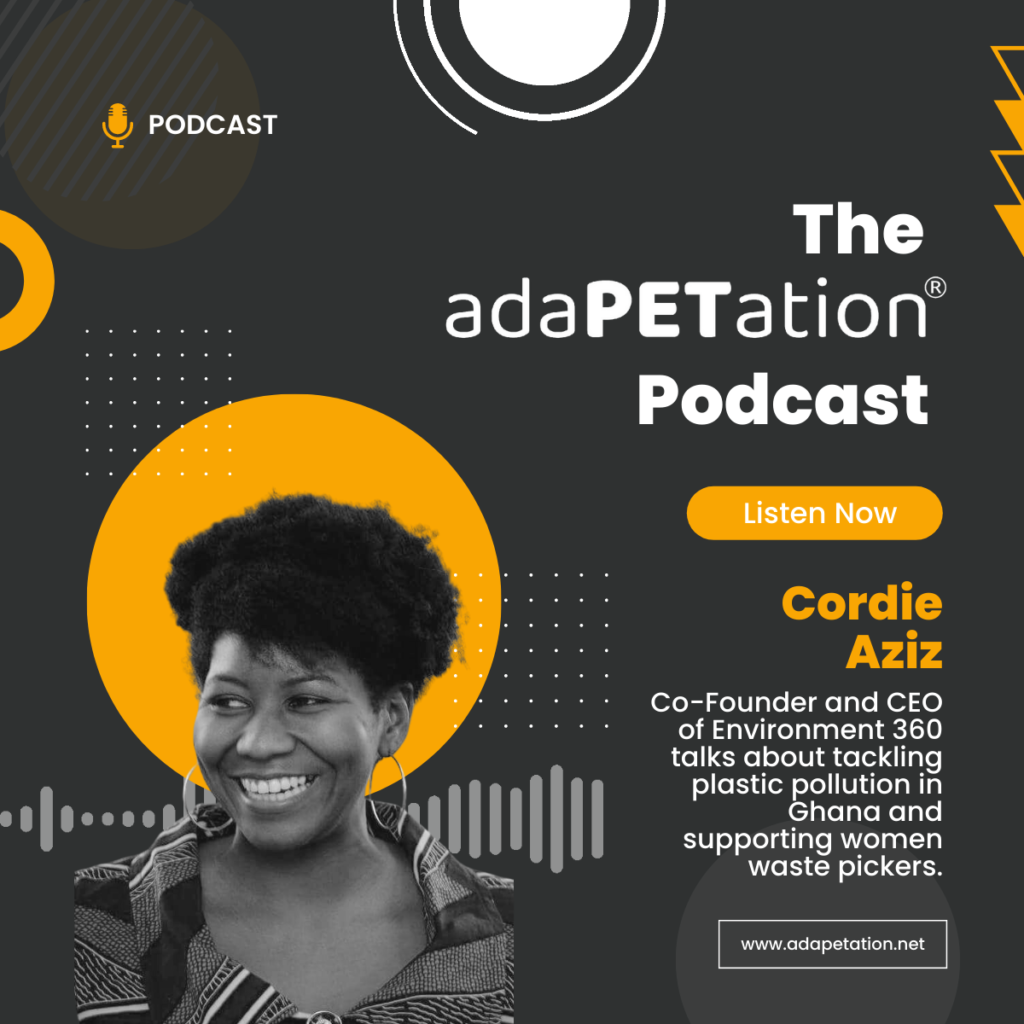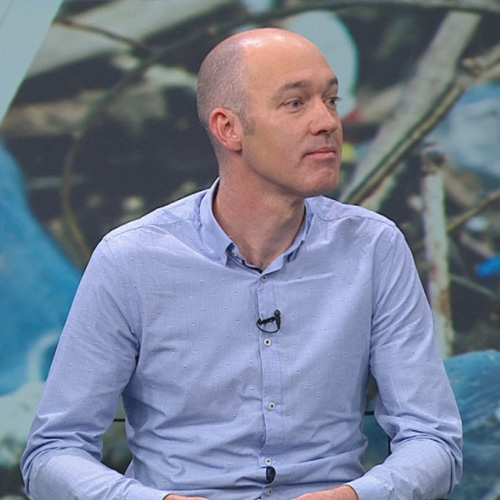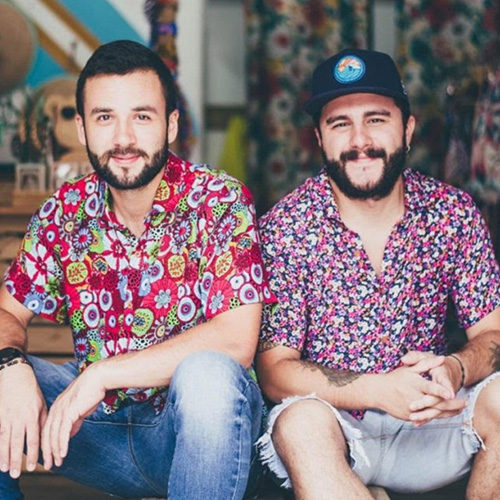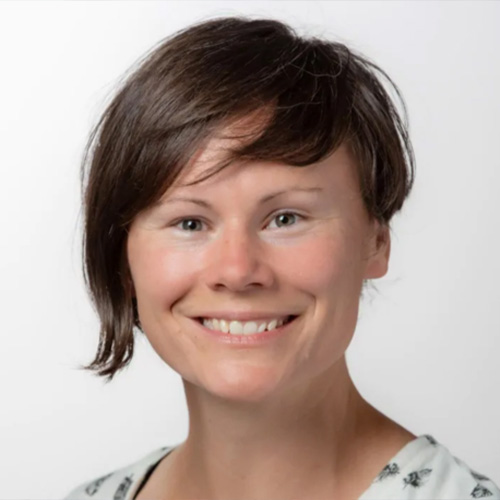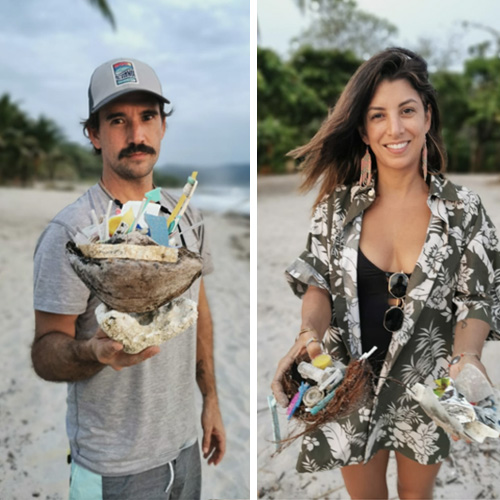
An interview with Cordie Aziz-Nash, Founder of Environment 360, on tackling plastic pollution in Ghana and supporting women waste pickers.
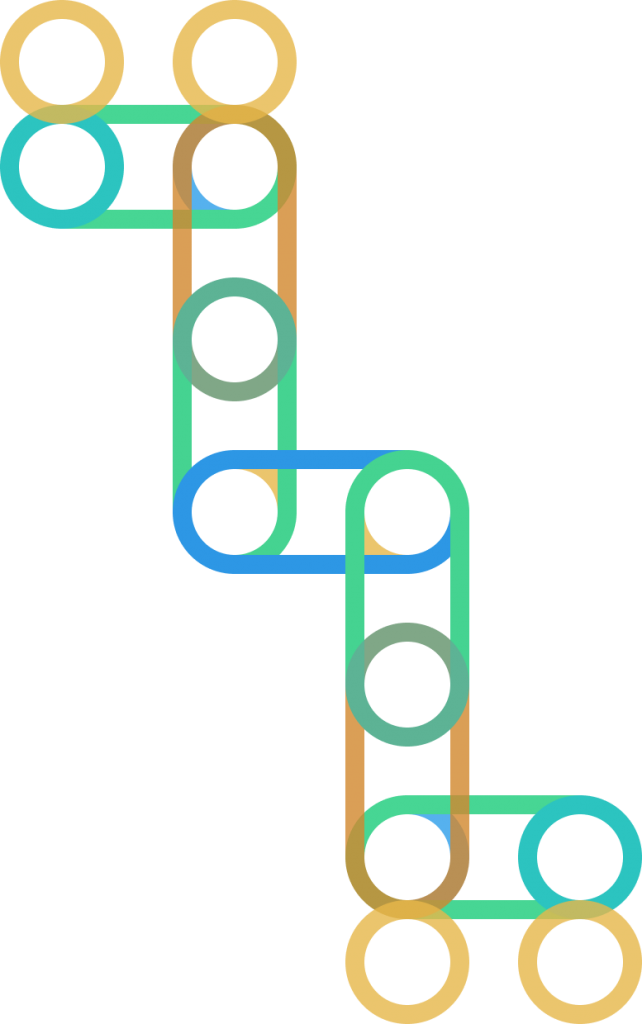
Cordie Aziz-Nash, the founder of Environment 360, shares her journey of creating a sustainable solution for Ghana’s plastic waste problem. She talks about the creation of Environment 360, an organization dedicated to addressing plastic waste in Ghana by promoting local solutions and the importance of creating local solutions to solve global issues, and how her work has impacted waste pickers in Ghana.
It’s a fascinating glimpse into how storytelling and connecting with other founders can sustain networks of hope and how her organization is working towards restoring ecosystems in a place where there is a serious need for waste management infrastructure and eco-heroes.
Five Minutes with Cordie Aziz-Nash
Share with us the light bulb moment for Environment 360. How did you come up with the original concept?
“I think with anything or any solution that you’re proposing, it’s not necessarily one thing, but it’s actually a mix of several different factors. So I was actually born and raised in the US. I moved to Ghana at the age of 30, and I remember one of the reasons I specifically chose Ghana is because it was a coastal country. And of course, who doesn’t want to live near the beach, right? And I remember my first few beach trips and being very disappointed because the beach was highly polluted. It was more disappointing one day when some friends and I went on a beach trip and there were these kids playing in the water and one got off and pulled a black plastic bag off of his foot. So we called the kids over and we’re like, you know, just how does it feel to have to swim on a dirty beach? And the kids were clueless because they are from the community that’s directly across the street. So this is the only beach that they’ve ever seen. So we pull out our phones. We’re showing them different pictures of beaches around the world. And these kids are just awed. And at that moment, I realized that something had to be done because it was essentially becoming normal to have such a dirty environment and to have dirty beaches. It was particularly personal for me as well because, even though I’m from the US, I was sort of the first generation of the Keep America Beautiful campaign. So I really remember the transition coming through and really supporting the education of youth to change what the environment of the United States looked like, and realizing that we can probably do this in Ghana as well. So I started Environment 360. And just over the years, it sort of morphed into its own thing.”
How can we learn from other worldviews and how can they help us shape a wise response to some of the challenges we face as a species?
There’s so much that can be learned from the one great thing I think that’s very unique about Africa’s Green Revolution is that because we haven’t had an industrial revolution, this is sort of Africa’s chance to do it right. And I think it’s a really unique opportunity that we’re really poised at. And one of the things I think we can really learn from the worldviews is really understanding what things weren’t done well in the Western world to sort of get us to this point we’re arriving at today. And I think that those particular understandings of, you know, as we have emerging businesses, how do you design your packaging so that it has less of an environmental impact? How do you design products that can be reused or easily repaired time and time again that aren’t just throwaway products or that just aren’t throwaway products? How can we actually be able to have dialogue and learn from not only our neighbors, but other African countries which are very similar? So I think that there’s a lot from worldviews and even just studying the progression of industries that can really be learned and leveraged when we’re looking at the Green Revolution and what that looks like on the African landscape
What are you doing to restore ecosystems?
There are several things that we do. One of the things that we do is all of our programs have value added training initiatives that are intended to increase the resilience of individuals. So we actually allow individuals to do cross-training on skills that can also help them or reduce their cost of living. So for instance, what we’ve been able to do is teach them snail farming as well as farming of tomatoes and okra so that they can either sell those to support their income or also just be able to use it to support themselves so that they don’t have to spend that money. So we actually teach alternative skills that can help increase income and once again, give them a little bit more resilience. Our work as well, we do work in coastal communities, so we do try to work very closely with key individuals, for instance, like the port and other things to really look at how we can stop some of the dumping in the port by large vessels and other things that are coming through. So we do work very closely and ensure that particular balance by helping to restore urban green space, of course, through our farming initiatives. And then of course because we’re in coastal communities, the beaches are always important for us too.
So how are you approaching the problem of plastic waste? Could you describe how it works? What does Environment 360 actually do? And how have you been able to measure the impact and consequences of what you’ve been doing?
Environment 360 has been very fortunate in life. One of the things I can say is I don’t think I ever envisioned Environment 360 growing like it did. We’ve been very organic, but we’ve gone from just doing school education programs to supporting waste pickers to working with the private sector to then working with international donors. So it’s been a very quick sort of growth for us. I think one of the things that’s really unique about our growth is that we really focus on bringing all stakeholders together and really looking at how we can work together to really be able to create local change. A lot of times when we talk about plastic pollution, which is absolutely a global issue, we are rushing to use a global solution for very local issues. And our approach is more of creating local solutions to solve the issues that local communities face that can then be replicated in similar communities. So once again, through our work, we’ve been able to establish the first waste picker led sorting center here in West Africa. We’re actually known as the creator of community recycling in Ghana. We have the first successful collection program for collection of plastics recognized by our Ministry of Environment, Science, Technology and Innovation. And then we’ve also gone on to run a lot of pilot projects that really look at what are the different business incentives that we can use to support formalization and incorporation of informal sector waste pickers. And then even more recently, we’ve been able to launch the Circular Innovation Hub, which is really focusing on rural communities and helping community waste pickers, which are mainly women, move from just collectors into small scale recyclers.
What would you say are the obstacles or challenges that you currently face in being able to scale your impact or offer your solution at scale?
This is sort of like what comes first, the chicken or the egg, right? I think some of the main challenges are that people really don’t recognize local solutions enough. Most people that invest in African countries, it’s still very risky. So you don’t see a lot of high risk investors or sort of slow capital investors that are really willing to come into the market and then support you for a long period of time. We also don’t have a solid philanthropic market here in Africa, which means most of our angel investors and other things come from outside. Sometimes it can be hard to understand the African landscape, so there can be a little bit of hesitancy, particularly if our governments haven’t shown the political will. Fortunately, I’m in Ghana, so there have been some positive steps towards addressing and scaling local solutions. But of course we know government doesn’t move at the same rate as the private sector, which is really problematic when you are sort of an early adapter or you have an early stage intervention and you’re really looking for policy or government to really be able to unleash that or scale. So I think that these would be some of the major challenges that we face on this side.
Where do you find your inspiration? Have you explored biomimicry or systems thinking?
So for me, I think my biggest inspiration actually comes from working with the women waste pickers. Um, my grandmother actually cleaned houses for a living and I always think it’s so interesting because in just one generation, her grandchildren look completely different. Um, so for me, I actually really resonate with a lot of our waste pickers because I also feel like I come from very humble beginnings and I really understand how small acts of kindness or small support in different ways to empower people economically can really change an entire generation. So for me, that’s the main thing that actually really keeps me motivated because we do mainly work with waste pickers which are highly disenfranchised, stigmatized in their communities. A large part of what we do is really sort of storytelling and telling their impact and what they’re doing and showcasing their knowledge, because once again, they may not have the best technology, but a lot of them are really experts in what they do when it comes to basic ways of material identification, processing, even development of local technology to process things to a certain level or to clean plastics. So I think that there is real power in sort of working within those local systems to sort of change how people view what is waste, how are people who handle waste, how are they viewed within society, How do other key players that have power interact with them, and how willing are they to share that power or to give them some power so that they have more autonomy and economic freedom? And these are the things that really sort of motivate me to keep going with Environment 360 is because I’m really passionate about seeing that systemic change where it’s not only you being a collector and being at the very bottom of the value chain, but how can we get you to aggregator, how can we develop partnerships with you, with companies that want to have strong ESG policies and environmental policies or want to recycle? How can we incorporate you into the systems that are currently changing to ensure that your livelihood isn’t cut short?
How do you measure the impact you’ve had?
So in 2017, we actually launched Pickit 2 or we launched the Pickit project. The first Pickit project didn’t go so well. It was a failure, but we learned a lot of really valuable lessons about working in group dynamics with waste pickers. Fortunately, we were able to get the project refunded and we launched Pickit 2.0 last year. We are currently working. **So Pickit 1.0 was financed by the Danone Ecosystem Fund and then a local partner, Fanmilk, and then pick it. 2.0 is actually financed by the German Federal Ministry of Climate Change and Energy through their Icce grant program. And with that particular grant program focuses on is how to eliminate greenhouse gases or lower greenhouse gases that are really in line with the country’s nationally determined contribution or NDCs. So the Pickit project is really about increasing recycling rates so that we can decrease the amount of waste actually being landfilled or burned in communities to reduce that that carbon dioxide level in the greenhouse gases. So the project focuses on empowering waste pickers to increase their incomes while also collecting more plastic from their community. And for this project, we’re working with 30 waste picker leaders. At first we actually felt like we weren’t going to get a lot of women, so we set the bar sort of low for women and said that, hey, we’ll do at least 40%. Fortunate for us, we actually have I think it’s 80% of our waste pickers on this project are actually women leaders, which is astronomical because sometimes due to gender dynamics, they don’t always step up in leadership positions. One of the key challenges for waste pickers that the pick it sorting facility addresses is the need for storage space and technology. So it really operates as a business incubation hub for waste pickers. So waste pickers affiliated with the Picot project are able to have access to storage space for their groups. And we also train them how to work a flaker or a shredder so that they can process the plastic that they collect. So they are essentially able to store their materials in a safe space without threatening of their materials being missing or burned. And then they’re also able to not only just collect and sell, but now they can actually sort materials and flake those materials and sell them at a much higher price. And when we look at the difference, on average non flake materials sell for about one de 70 pessoas, which is about $0.17 in US dollars, but it actually sells for. But when you flake it actually sells for 70 pessoas, which is about $0.27. So that’s actually a very large increment for a waste picker that essentially was used to just sorting and selling. So we’ve actually seen income of up to 40%. But most importantly, most of the waste pickers that we’re working with on the Piquette project are no more just small community collectors. When we met them, they were collecting maybe 100, 200kg within a week, maybe less than a tonne within a month. Now we have groups that are collecting three tonnes in a month, so even their collection has gone up, which directly translates to more income for them. Through our circular innovation hub, we actually were able to import an open source recycling machine from Plasticpreneur that we’ve actually trained women waste pickers to work so that they can turn a fraction of the plastic they collect into products. Now we’ve just been able to recently release a bracelet line from Environment 360 to help support these women. So these are some of the projects that we do, but we try to make sure that our projects not only have environmental impact, but they really have economic impact as well.
How do we sustain networks of hope? You’ve done a really good job of getting the attention of international organizations to back what you’re doing in Ghana. What advice do you have for people who are looking to do the same thing, create these bridges between the developed world and developing countries that really need the support because they don’t have the waste management facilities?
I’m a firm believer in storytelling. I think that people like to be able to connect and people need to understand the impact. I think when it comes to Africa in general, people are really used to an aid format or an NGO format, which really doesn’t require results, right? It just requires that you sort of show some beneficiaries and faces across the way that are smiling and you illustrate that you spent the money according to the grant. And I think that particularly since Covid, people now are looking for more of those impact stories, people really want to see what change are you creating, How are you creating jobs, how are you sustaining communities? How are you increasing the resilience so that if there is a disaster or if the value chain does break down, those individuals are going to still be able to make a livelihood? How are we going to make sure that as we start moving more into the technology age, that those individuals that may not have access to technology, how are they still going to be able to compete in a world that’s moving more towards digitization? So I think that these are our key things. And I think even sometimes just sharing the change in 1 or 2 people, I think that it inspires people to know that they’re doing the right thing and that they’re not just giving their money or throwing it down the drain and I think that that’s really an important thing to be able to do. The next thing I would say outside of storytelling is I think people really need to connect with the founders and other individuals that are doing it. You know, I’ve learned on my founder journey, each founder is very unique and what motivates them, and sometimes it’s actually going to be the founder that’s really critical for people understanding what that passion is. It’s important that founders are able to really speak to why they’re passionate about what they’re passionate about and how it connects to them personally. It used to be, you know, before the day and age of social media you could be very private and nobody really asked you what motivated you or why you do the work that you do. But I think as we’ve evolved as a society, we really have understood the personal linkages and sort of what drives individuals. And I think sometimes the founder’s story can be a very passionate way in a great connecting point for people to resonate with the good work being done.
Thank you so much, Cordie. One final question. What would you do with €10,000 of non-dilutive funding if you were to win the PET Heroes 2024 prize?
We would actually spend it on tools for our circular innovation hub. The Circular Innovation Hub is sort of a pet project of Environment 360. It’s sort of my own passion project. So this is the one project we actually don’t have a major funder for. We saved for the land over a period of years. We were able to get a small grant from the Australian Direct Aid program, which allowed us to build some basic infrastructure, but we still lack a lot of the tools we need to really make it into a circular innovation space. So we definitely need just a variety of tools to outfit it. We also need to expand the training space so that we can sort of invite more individuals to learn and share and do technical exchanges. So if we are able to to win or we’re inspiring enough, we would definitely invest in our tools for the Circular Innovation Hub so that we can really incorporate more community members into developing circular solutions and then also make sure that they’re well equipped to do their prototypes of those circular solutions for us to be testing in communities.
What sort of tools in particular are you looking for? Do you have tools there already?
“So we have two modular recycling machines. We have basic wrenches, molds, hammers, this type of thing. But we’re looking to get more things like circular saws, 3D, 3D printers that can support. We’re looking at work tables. We need grinders so that we can actually grind different types of materials, maybe 1 or 2 sewing machines so we can look at how to do sewing. But we need a full sort of mechanical tool set.”
And where is this innovation hub?
Dodowa. So it’s actually in a rural area. The reason we set up in Dodowa is because we want our circular innovation hubs to really work in rural communities, since they often don’t have any access to waste services. So the idea is to really get them to think about how they can start reusing with their creation as different materials. So for instance, we did a summer camp a year and a half ago with some students and they actually made firewood from pressed coconut, right? So this is where if we would have had like a nice little firm press for them, the fiber probably would have. The plywood probably would have turned out a lot better. Right. So we really want to be able to develop feasible prototypes where if we’re taking it or we’re asking someone to help scale or invest that particular individual that’s created that like they are actually taking a very strong prototype to someone or something that can be easily tested within the community without extra support.
VOTE COMING SOON
The PET Heroes Prize 2024 winner will be chosen through voting starting in March of next year. Stay connected to our social networks for the announcement. surrounding plastic.
NOMINATE YOUR PET HERO
Tell us what you think of our list of PET Heroes 2024 and recommend inspirational leaders coming up with the best solutions to systemic issues surrounding plastic.
Share it

